A Russian propaganda film produced by Oliver Stone that presents the NATO-American participation conspiracy in the 2014 Euromaidan in Ukraine and its aftermath.
Related Movies
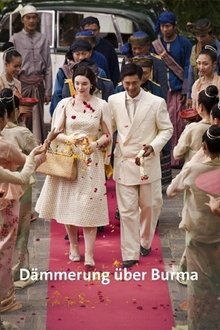
Twilight Over Burma (2015)
The U.S. scholarships Austrian student Inge and young mining student from Burma Sao Kya Seng fall in love. But it's only at the lavish wedding ceremony that Inge discovers her husband is the ruling prince of the Shan state of Burma. After a coup staged by the Burmese military, Sao is imprisoned. Inge does everything she can to free him. Base on the true story of Inge Sargent.
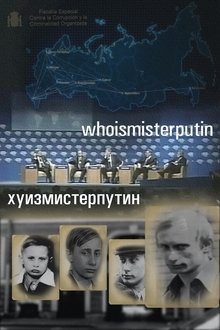
Who Is Mister Putin (2015)
Based on investigations by independent journalists, the film documents the origins of Russian President Vladimir Putin’s private wealth and subsequent rise to power, demonstrating his ascension to the Russian presidency after an alliance built in the early 1990s between himself, certain friends from Leningrad’s KGB, and mafia groups.
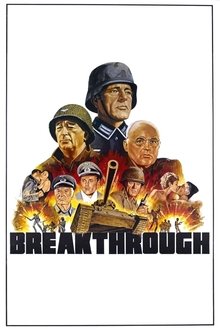
Breakthrough (1979)
Starting in late May 1944, during the German retreat on the Eastern Front, Captain Stransky (Helmut Griem) orders Sergeant Steiner (Richard Burton) to blow up a railway tunnel to prevent Russian forces from using it. Steiner's platoon fails in its mission by coming up against a Russian tank. Steiner then takes a furlough to Paris just as the Allies launch their invasion of Normandy.
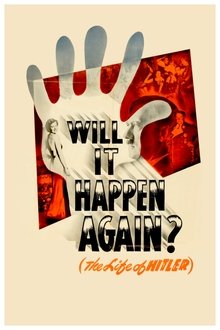
Will It Happen Again? (1948)
An account of Adolf Hitler's rise and fall, his relationship with Eva Braun and their days of leisure at the Berghof, their Bavarian residence.
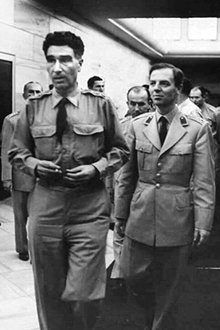
Demirkırat: Coup (1991)
While the government was in a deep sleep, the brain staff of the revolution was completing its final preparations at the Military Academy, there were only a few hours left for the revolution that had been prepared for six years. Despite six years of preparation, there was actually no serious plan at hand. An unplanned, unscheduled full night raid was to be organized. The management level of the army was pro-government. Therefore, it was impossible for the intervention to take place within the chain of command. This was to be a grassroots military operation. The army of the operation consisted of young cadets. Except for the Harbiye, there was no force at hand. It was even possible for units such as the Guards Regiment and the Central Command to resist. That's how the day of May 27 began with the unknown and risks. Major General Cemal Madanoğlu, the commander of the Revolution Headquarters, would have the last word...
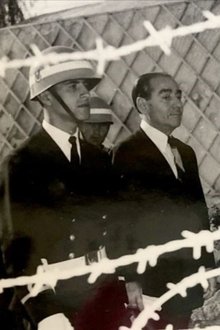
Demirkırat: Island (1991)
It is a famous saying: "One can come to power with a bayonet, but not sit on it." The organization, which carried out 27 May, came to power with a bayonet. Moreover, these young officers seized power that night by breaking the traditional chain of command. In the morning, a 10-year DP period was over, the support of the public was gained at first hand, and a brand new phase was reached. Now, the days that would mark the future of Turkey were beginning. Now, as those days put it, the "second republic period" was beginning.
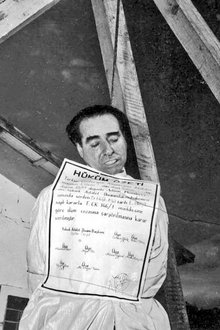
Demirkırat: Execution (1991)
We came to the end of the road. We told you the story of the establishment of a democracy throughout 9 episodes... We witnessed the collapse of a one-party regime. We witnessed the disappearance of the national chiefdom. Together we experienced the holding of the first free general elections and the raising of democracy in pain. And finally, we told you about the birth, rise and fall of a new power. Where we ended up was a military intervention. Whatever the reasons, the storm of revolution had blown once. Now the task of the officers who seized power on the morning of May 27 was to contain that storm. But it didn't. After a while, the storm started to drag the revolutionaries in front of it. The historical scenario was repeated. The Revolution ate some of their children. The revolution was now speaking its own language...
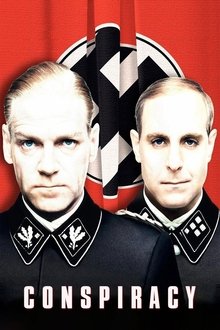
Conspiracy (2001)
At the Wannsee Conference on January 20, 1942, senior Nazi officials meet to determine the manner in which the so-called "Final Solution to the Jewish Question" can be best implemented.

Zeitgeist (2007)
A documentary examining possible historical and modern conspiracies surrounding Christianity, the 9/11 terrorist attacks, and the Federal Reserve bank.

Lee (2024)
The true story of photographer Elizabeth "Lee" Miller, a fashion model who became an acclaimed war correspondent for Vogue magazine during World War II.
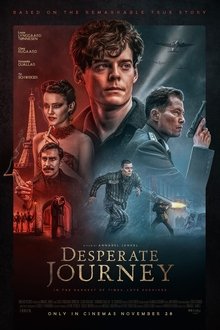
Desperate Journey (2025)
The true story of Freddie Knoller, a young Jewish man who flees Vienna following the Nazi occupation in 1938 and finds solace in the vibrant world of Paris's burlesque scene.
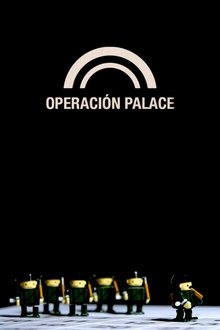
Operación Palace (2014)
Finally, 33 years later, the whole truth behind the attempted coup d'état that shook Spain on the afternoon of February 23, 1981, is revealed by those who lived through those dreadful hours; a deep look behind the heavy curtain which hides the real mastermind, waiting to be unmasked.

WWII From Space (2012)
WWII from Space delivers World War II in a way you've never experienced it before. This HISTORY special uses an all-seeing CGI eye that offers a satellite view of the conflict, allowing you to experience it in a way that puts key events and tipping points in a global perspective. By re-creating groundbreaking moments that could never have been captured on camera, and by illustrating the importance of simultaneity and the hidden effects of crucial incidents, HISTORY presents the war's monumental moments in a never-before-seen context. And with new information brought to the forefront, you'll better understand how a nation ranked 19th in the world's militaries in 1939 emerged six years later as the planet's only atomic superpower.
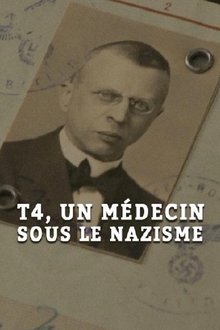
Operation T4: A Doctor Among the Nazis (2016)
A reckoning of Nazi Germany’s planned execution of its own citizens with physical and mental disabilities whom they deemed useless to their society.
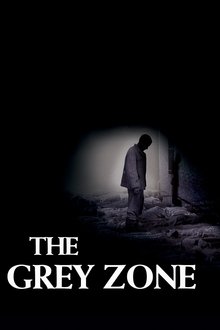
The Grey Zone (2001)
The story of Auschwitz's twelfth Sonderkommando — one of the thirteen consecutive "Special Squads" of Jewish prisoners placed by the Nazis in the excruciating moral dilemma of assisting in the extermination of fellow Jews in exchange for a few more months of life.
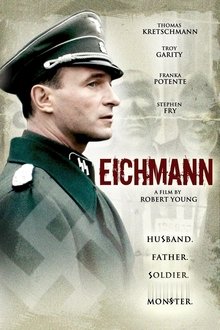
Eichmann (2007)
Based upon the final confession of Adolf Eichmann, made before his execution in Israel, of his role in Hitler's plan for the final solution.

SAS and the Normandy Campaign: Operation Bulbasket (NaN)
This programme follows the deployment of the main body of the SAS, the Recces on targets, the raids carried out both by the SAS and the bombing attacks they called in. As the SAS created havoc to the railway system the Germans were hunting them down. Eventually by the use of torture and information by collaborators the Germans tracked them down to their camp near Verrieres. The majority of the SAS were killed or captured. Those captured were later murdered by the Germans.. Their actions tied up large numbers of Germans in guarding the railways and imposed a severe delay on the movements of the 2nd SS Pz Div to Normandy. A few brave men had an impact on the liberation of France out of all proportion to their numbers

Hitler Lives (1945)
This short film, produced at the end of WWII, warns that although Adolf Hitler is dead, his ideas live on.
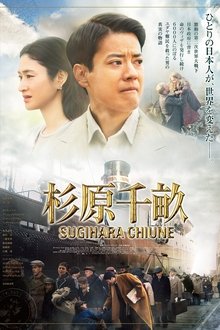
Persona Non Grata (2015)
The story of a Japanese diplomat, sometimes called the Schindler of Japan, and his life lading up to and after his decision to issue over 2,000 visas to Jewish refugees in Kaunas, Lithuania resulting in saving the lives of over 6,000 people. This is the story of a man who believed in doing all he could do for the benefit of his beloved Japan, including trying to keep her from becoming embroiled in a worldwide conflict he saw as inevitable. Along the way, he came face to face with the plight of the European Jews as they tried to escape the onslaught of the Nazi's and the rapidly advancing German army. Caught between the unbending policies of his country now bound by treaty with Nazi Germany and his awakening moral responsibilities, we follow his life from his early days in Manchuria to his eventual posting in Lithuania and his appointment with destiny which would forever brand him a hero.

Santa's Wild Home (2020)
Green lights dance across a star-filled sky, and snowflakes sparkle on the trees. It is little wonder Lapland is famous as a realm of elves and flying reindeer, the magical home of Santa Claus. This northernmost region of mainland Europe, however, is a real place, with real animals such as reindeer, Great Gray owls, wolverines, eagles, wolves, musk oxen and Brown bears who live out their lives in the tundra and forest.